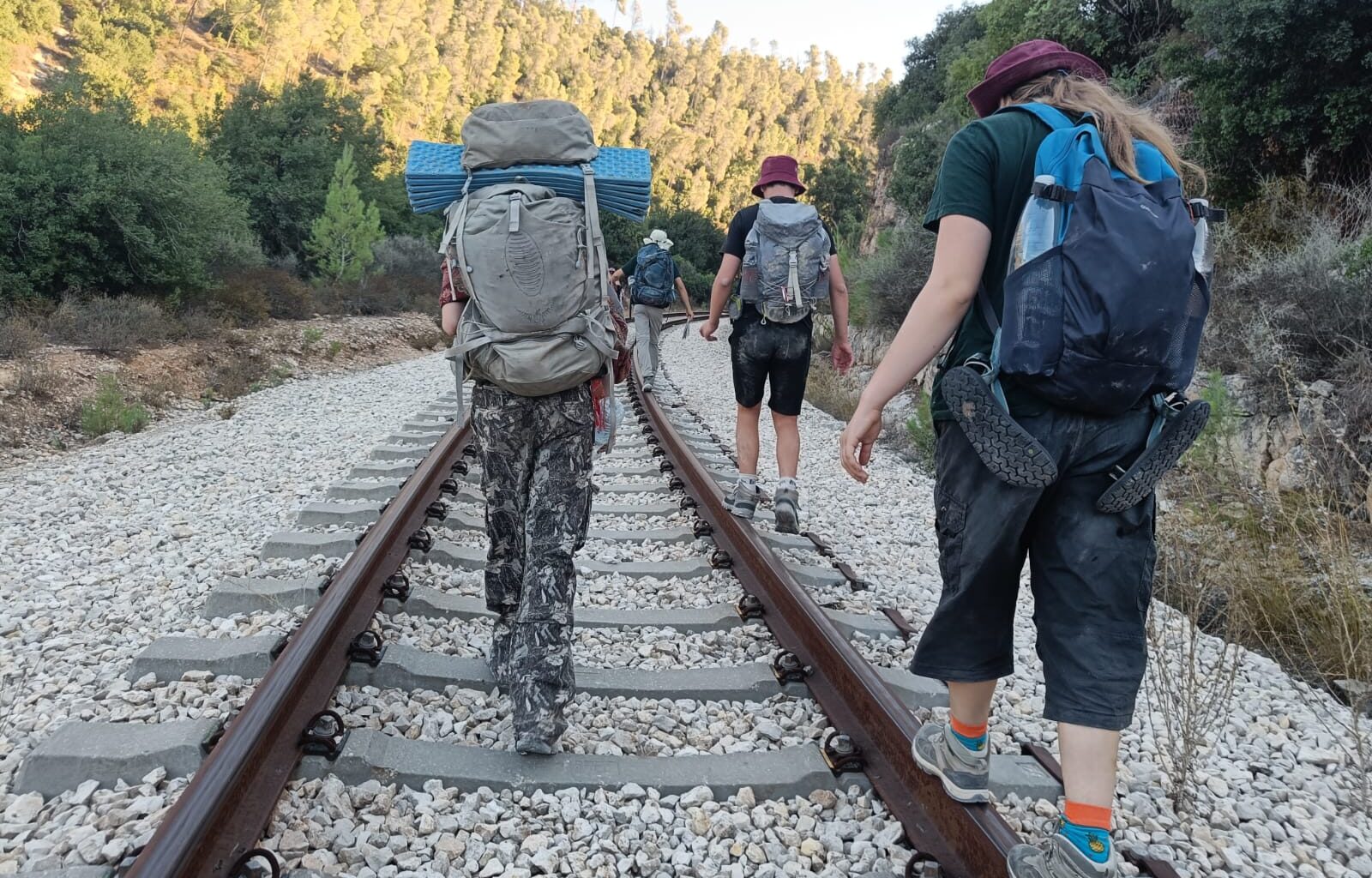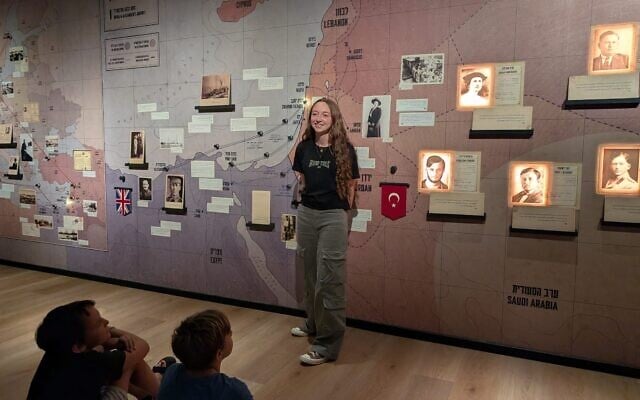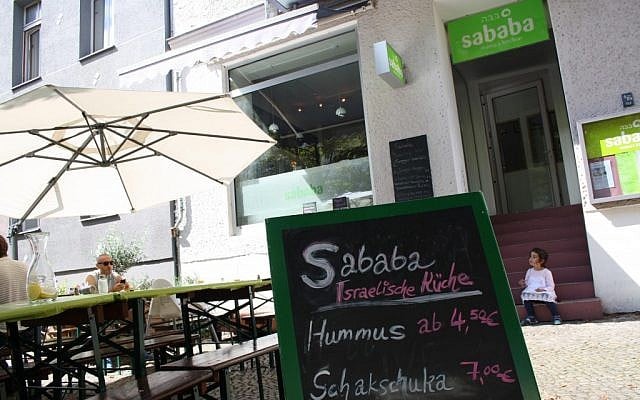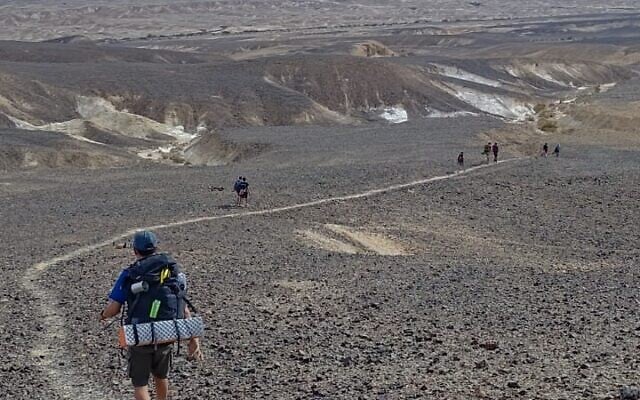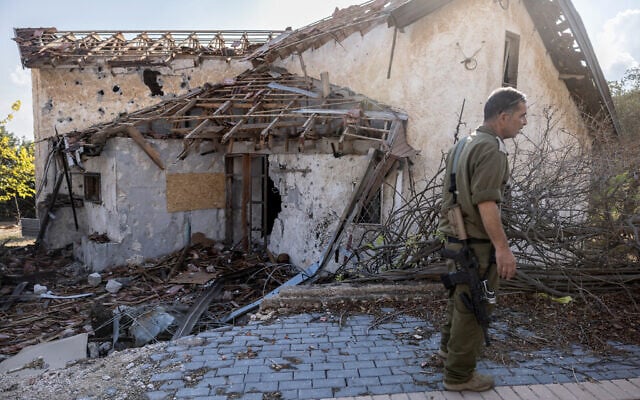At Kibbutz Yad Mordechai in Israel’s Western Negev, a group of schoolchildren files through the preserved trenches where fighters defended the area during Israel’s War of Independence. Nineteen-year-old Moriah Yisraeli, who is completing her national service with the Society for Preservation of Israel Heritage Sites (SPIHS), waits for them to gather around before she begins her tour.
She describes the fierce 1948 battle that saw the kibbutz fall to enemy forces before being recaptured. Then, she holds up a recent photo: armed members of the Yad Mordechai emergency squad crouched in those very same trenches on October 7, 2023, defending their homes again — this time from Hamas terrorists.
“The kids fall silent,” she told The Times of Israel following the tour. “You can see them mentally connect the dots. They suddenly realize that the story we’re telling isn’t just history. It’s happening now, and it’s their story too.”
That moment of connection underscores a deeper national concern. While global Jewish organizations focus on strengthening Diaspora youth connections to Israel amid a rise in antisemitism and anti-Zionism, some of the country’s own young people are grappling with uncertainty about their future at home.
In October 2023, more than 12,300 Israelis left permanently, nearly four times the previous year’s figure for the same month.
Get The Times of Israel’s Daily Edition
by email and never miss our top stories
By signing up, you agree to the terms
For some young Israelis, the aftermath of the October 7 onslaught and the ongoing war in Gaza have deepened questions about whether to seek stability abroad. Even before the massacre, young Israelis were striking out overseas, hoping to leave economic pressures, social divides, security concerns and a dismal housing market behind. The aftermath of the Hamas invasion accelerated this trend. By the end of 2024, almost 83,000 people had emigrated, a record-breaking increase.
In part to stave off climbing emigration, heritage programs, youth movements and grassroots rebuilding projects attempt to offer youth a renewed sense of meaning and connection to the land.
Heritage and service
Yisraeli began her service with SPIHS in September 2023, just weeks before the October 7 attacks. She is one of about 100 young people designated annually to guide visitors at heritage sites such as Yad Mordechai and the Atlit Detention Camp.
Describing the situation after the Hamas massacre, she said: “Suddenly, I saw the past and present collapse into each other. Telling the story of 1948 felt like telling our story today. I realized this is what connects us and keeps us here.”
Her fellow volunteer, 19-year-old Galia Shoham, agrees.
“By sharing our history, I felt that I was helping people appreciate what we have. It reminded me that having a state of our own is anything but a given,” Shoham said.
Galia Shoham leads a group at a heritage site with the Society for Preservation of Israel Heritage Sites. (Courtesy SPIHS)
Both say the experience gave them a deeper sense of belonging. “When you give to the country,” Yisraeli reflected, “you always receive something in return.”
Opportunity knocks — abroad
Not every young Israeli feels that way. European cities such as Berlin surged in popularity as a destination for Israeli expats seeking a higher standard of living — especially after the 2012 social justice protests highlighted how Israeli chocolate pudding somehow bore a cheaper price tag if purchased in the German capital.
New York City, already a hub for Israeli-born Jews, has seen an even bigger boom since October 7, with over 560 Israeli-founded tech startups now based in the city — up from 450 in 2024.
According to a report by the London-based Institute for Jewish Policy Research, there are now roughly 630,000 Israeli-born Jews living outside Israel, plus about 330,000 “Israel-connected individuals,” bringing the total close to 1 million.
The growing number of Israelis living in Berlin is reflected by the recent opening of several hummus joints, including Sababa, photographed in 2012. (Assaf Uni)
This perceived need to counter emigration through rooting Israelis in their own history, land and culture is why many programs are attempting to reach Israeli youth at increasingly earlier ages: Na’ama Loto, now aged 19, felt her connection to Israel’s story deepen during her early teens through the Green Horizons movement, which offers educational hikes and camping trips to build leadership skills and Zionist values.
During the COVID-19 shutdown, she hiked Mount Arbel with her group.
“Standing there, seeing layers of history — Crusaders, Mamluks, biblical figures — I felt like I was literally walking through the story of my people,” she said. “That’s when I knew I truly belonged.”
Asked about her future, Loto didn’t hesitate.
“I’ve met and worked with so many amazing people who care deeply about this country. Leaving would feel like walking away from a story I’m still discovering,” she said.
Participants on a Green Horizons hike in Israel, in an undated photo. (Courtesy of Green Horizons)
Green Horizons CEO Daniel Dvir believes these formative experiences matter.
“Once a teenager sleeps under the stars or treks across the Negev, they feel a deep connection to this land,” he said. “There are beautiful landscapes around the world, but it’s not the same. That connection makes it harder to feel at home anywhere else.”
Rebuilding the north
While the October 7 terror invasion — which saw some 1,200 people slaughtered and 251 abducted to the Gaza Strip — sparked the ongoing war with Hamas in the south, northern Israel was soon dragged into the conflict as well when it came under heavy rocket fire from the Lebanese terror group Hezbollah. Tens of thousands of residents were displaced amid widespread destruction to homes and towns, and, despite a November 2024 ceasefire with Hezbollah, many communities are still reeling from the effects of the war.
An Israeli soldier stands in front of a house hit by Hezbollah rockets in the deserted northern Israeli town of Metula on November 4, 2024. (Menahem KAHANA / AFP)
To help, the Yigal Alon Center at Kibbutz Ginosar is developing an initiative for pre-army youth to form garinim, or core groups, dedicated to “adopting” northern towns. These young Israelis would help with tutoring, rebuilding, and participating in community life.
“It’s more than volunteering,” said coordinator Roi Defrin. “We want them to feel invested, to see these communities as places where they might one day build their own futures.”
Daniel, a 20-year-old soldier from Modiin, is part of the pilot group.
“It has never crossed my mind to leave Israel,” he said. “Living here is a privilege. When you’re part of a dream thousands of years in the making, every challenge feels small.”

